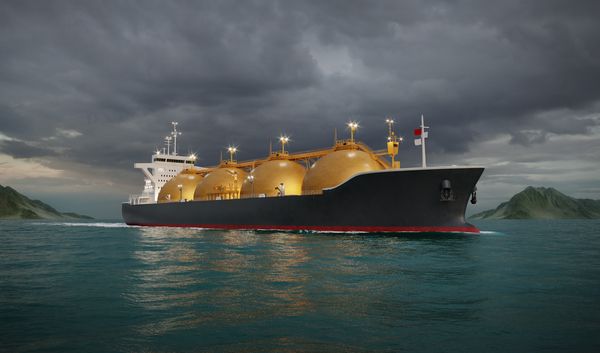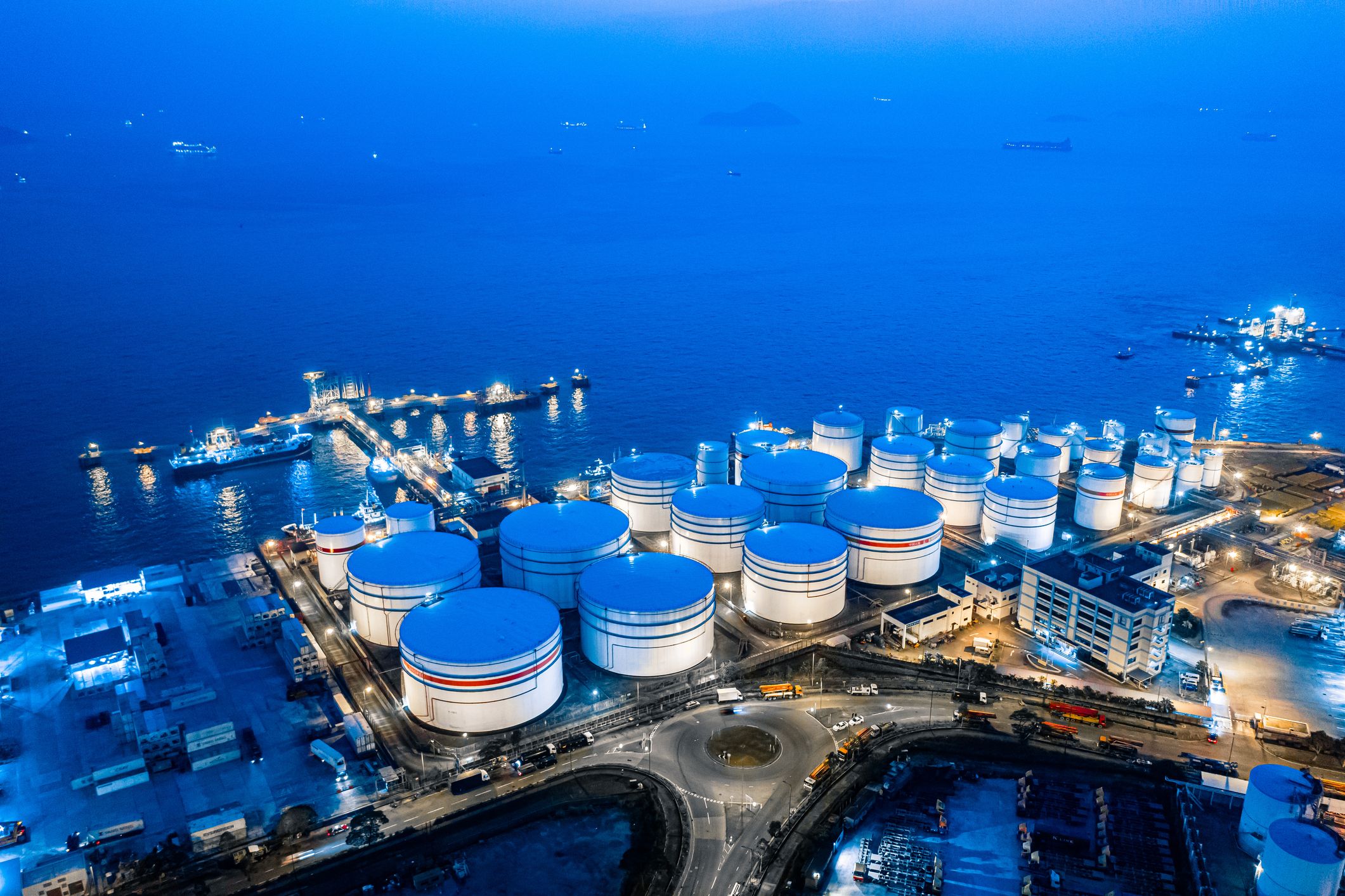Well, it looks as if betting on liquefied natural gas (LNG) exports might just work out after all.
Long considered a controversial investment, Cheniere Energy (LNG +2.10%) is beginning to prove the multi-year wait for commercial operations was worth it. Patient shareholders have now enjoyed two consecutive years of share gains, including a 30% rally in 2017.
The ongoing rally has pushed America's leading exporter of LNG to a market cap of $13 billion. While that remains significantly below the $20 billion valuation it held briefly in 2014, the company's debt has also exploded 154% since then. A complex organizational structure comprising multiple subsidiaries -- each with its own hefty debt balance -- doesn't make it any easier for investors to accurately gauge the risk presented by the balance sheet.
Will booming production growth offset those concerns in the long run? Is Cheniere Energy a buy right now?

Image source: Getty Images.
LNG's been good to thee
Cheniere Energy was one of the first companies to go all-in on the potential of American LNG exports years ago. The bet has paid off in terms of production growth this year, as the company nearly single-handedly put the domestic industry on the map with its Sabine Pass terminal. Peek ahead at expansion projects and it looks entirely possible the company will be the driving force behind Uncle Sam's ascension as a leading energy exporter -- and we haven't seen anything yet.
By 2020 the United States is expected to become the third-largest exporter of LNG on the planet (behind Australia and Qatar) with export capacity totaling some 9.5 billion cubic feet per day (Bcf/d). That's a heck of a growth spurt from just 0.8 Bcf/d at the beginning of 2016.
More astounding: If all goes according to plan with expansions at Sabine Pass and Corpus Christi, then Cheniere Energy will own roughly 4.5 Bcf/d of the country's total export capacity.
Last year, investors got their first taste of what's possible with such a dominant market position. In the third quarter of 2017, revenue grew to $1.4 billion and operating income grew to $297 million, up from year-ago totals of just $465 million and $15 million respectively. Cheniere Energy expects to put up at least $1.8 billion in adjusted EBITDA when full-year 2017 results are finalized -- and the company is far from hitting full stride.

Image source: Getty Images.
There are plenty of expansion opportunities on the horizon. Cheniere Energy currently has four liquefaction trains up and running at its Sabine Pass facility, with a fifth train nearing 100% completion. Meanwhile, it has completed over 72% of the first two trains at Corpus Christi. The seven-train platform comprises the first phase of the company's growth strategy, but the next two phases will up the ante significantly.
Preliminary plans call for potentially doubling liquefaction capacity through continued expansion at Sabine Pass (a sixth train is fully permitted), which utilizes larger capacity units, and altering commercialization plans at Corpus Christi to deploy medium-sized liquefaction trains to improve production flexibility.
Capacity additions and rising demand (and prices) create an awesome opportunity for growing the business, but what about that balance sheet and confusing corporate structure?
The early bet on American LNG exports was only made possible with enormous amounts of debt. Building large liquefaction facilities is not cheap. Cheniere Energy had $24.9 billion in long term debt on its balance sheet at the end of September 2017, resulting in a debt-to-assets ratio of 92%. Some of that debt is a direct obligation of the company, while some is owed by various subsidiaries directly, with only indirect obligations to the Cheniere Energy parent.
The list of subsidiaries includes Cheniere Marketing International LLP, Cheniere Energy Partners LP, Cheniere Energy Partners LP Holdings, Cheniere CCH HoldCo II, and many others. In fact, the company's organizational structure includes a whopping 13 subsidiaries.

Image source: Getty Images.
The good news is management is aware of the confusing web of relationships and has identified "simplify[ing] corporate structure" as a goal for 2018. The bad news is that could prove trickier and take longer than expected.
That said, the potentially great news is that, in the long term, it's likely none of it will matter. Cheniere Energy's successful production growth to date has significantly de-risked the business model, especially compared to a few short years ago when there were more questions than concrete answers. It also helps when some 85% of all production is sold in long-term agreements. That has allowed the company to refinance debt opportunistically and push maturity dates further out into the future.
Similarly, production growth will create significant earnings and cash flow for years to come. Considering that 2017 was the first year of commercial operations, and that 2018 will benefit from a full year of greatly increased volumes, it's difficult to imagine too much anxiety building up over the company's ability to repay its debts over time.
In the third quarter of 2017 alone, Cheniere Energy posted $442 million in consolidated adjusted EBITDA. It churned out $283 million in net income during the first nine months of 2017, which included a $379 million hit related to the conversion of subordinated shares owned by a subsidiary, and multiple quarters of production that was still in ramp-up mode. Simply put, it appears it would take a serious turn of events to knock this LNG exporter from its lofty perch.
Is Cheniere Energy a buy?
There's no denying Cheniere Energy trades at a hefty premium relative to its debt. That means the first stop along the company's journey of proving itself to investors is to grow into a $13 billion valuation. Given the rates of growth expected in 2018 and the strong financial performance in the years ahead, that seems likely.
After that, what's possible for this growth stock? Could it threaten its previous all-time high market cap of $20 billion? If production expansion continues to progress without a hitch and LNG continues to replace coal as an electricity source globally, then it seems entirely possible for Cheniere Energy to eventually earn its way to a much higher valuation. How long that takes to achieve is another question, but long-term investors should feel comfortable owning this business for the next decade or longer.







